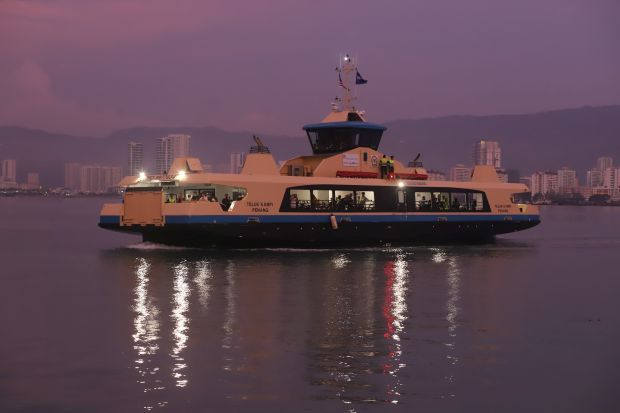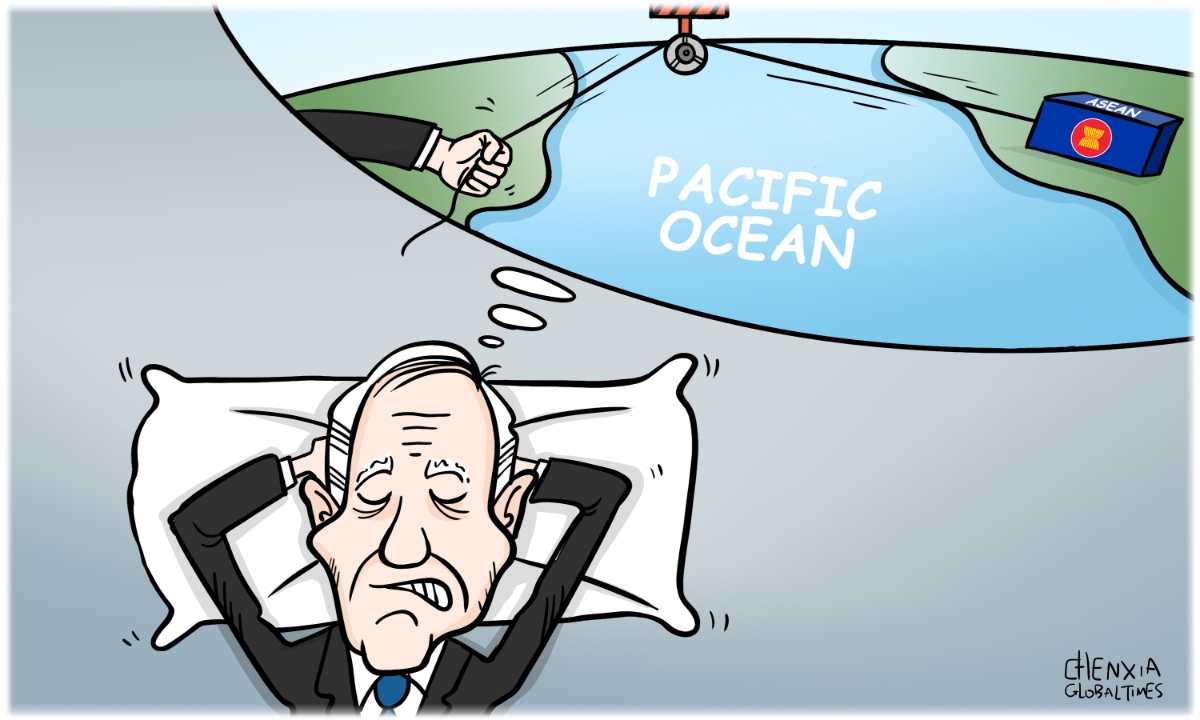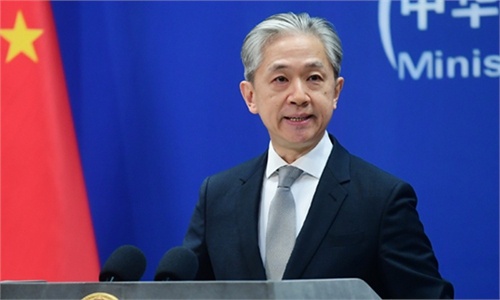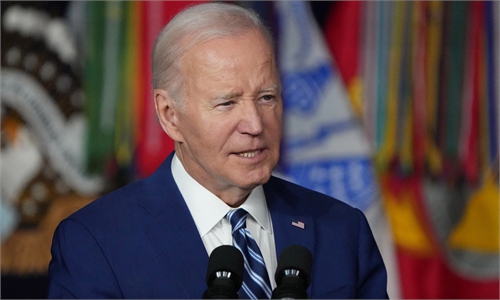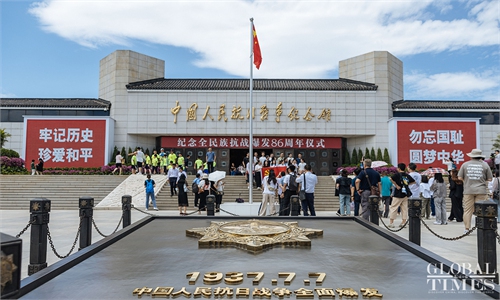New cooperation path
Jim O'Neill, a renowned British economist Photo: Xie Wenting/GTThe 15th BRICS Summit will be held in Johannesburg, South Africa, from August 22 to 24, 2023. At this year's meeting, the feasibility of a common BRICS currency, the internationalization of the Chinese Yuan, the growth prospects of emerging economies such as China, and the role of the BRICS in global governance will be the focal points of discussion.
With these questions in mind, Global Times reporters Xie Wenting and Bai Yunyi (GT) recently interviewed Jim O'Neill (O'Neill), a renowned British economist and former commercial secretary to the UK Treasury, who is also known as the "father of BRICS." In 2001, O'Neill first proposed the concept of "BRICS" and predicted that the share of BRICS countries in the global economy would rise significantly, hence earning him his title. In the interview, the British economist told the Global Times that the idea of expecting the G7 to play a greater role in global governance is stupid. Despite facing geopolitical challenges, emerging economies will inevitably have a greater say in global affairs.
GT: You are widely viewed as the "father of BRICS" in China. As the 15th BRICS Summit is set to take place in South Africa, what are your expectations for the upcoming summit? How do you assess the future development of the BRICS?
The main issue will be how many countries will actually become members of the BRICS plus. But now it is not clear to me regarding the expansion and what are the [membership] criteria. At the summit, these questions may be addressed.
Sometimes people have said to me: Why did you create this acronym, because they [member countries] don't have anything in common. That's not true. They all have a huge number of people and a lot of challenges with infectious diseases. I think the BRICS countries should enhance cooperation in areas such as public health and climate change.
I am optimistic about the development of the BRICS because of its potential. Over the course of the nearly 40 years that I have been observing China, it usually ends up doing the right thing. Additionally, due to India's remarkable demographics, these two countries emerge as the most crucial components within the BRICS framework.
Ultimately, China's massive economic size looms prominently, being twice as large as the combined total of the others. Thus, the real determinant of aggregate growth performance resides in the trajectories of China and India.
Among the BRICS nations, Brazil, Russia, and South Africa face daunting challenges such as over-reliance on commodities. They must embark on reform initiatives.
GT: De-dollarization is currently a hot topic. How do you view the prospects of a de-dollarization in the world? How do you view the prospect of using RMB in trade settlements between the BRICS countries?
O'Neill: I do think it is the case and this discussion has been had for over 20 years. The world is too dependent on the dollar. Every country in the world has to suffer the consequences of the economic cycle. The Federal Reserve Board is grappling with monetary policy matters, which align with the Fed's responsibilities, given that its mandates pertain to domestic US policy. However, this approach may not always align with the specific domestic requirements of many emerging economies, potentially subjecting them to a cycle that doesn't suit their individual needs.
Hence, the case for having a more balanced monetary system is really quite strong. The obvious contender from the BRICS group to play a bigger role is the RMB. I think the idea of the RMB becoming a more prominent invoicing currency for trade and gaining increased status as a reserve currency within the BRICS holds significant merit. However, the realization of this notion hinges upon the willingness of Chinese policymakers, including the People's Bank of China, to make it happen.
The discussion of the internationalization of the RMB has been around for 20 years, ever since the early days of the BRICS and since China played a crucial role in bringing around the end of the Asian financial crisis in 1998. In fact, I admire the slowness in which the Chinese authorities have allowed the rise of the RMB. You want to make sure that your domestic financial markets are sufficiently developed, especially the interest rate market before you allow your currency to be traded a lot more around the world. China has to allow for the growth of the RMB financial markets based on its own domestic needs.
GT: You once argued that the G7 is a zero. You said that since its creation, the G7 has become increasingly irrelevant in a world of new emerging powers. An institution that excludes the BRICS while still including economic basket cases like Italy cannot possibly claim the legitimacy required to exercise global economic leadership. But some observers have noted that the role of the G7 in global governance is reemerging, while the influence of the BRICS and G20 is decreasing. How do you view this perspective?
O'Neill: I think it's a bit crazy. It is indeed the case that since US President Joe Biden came to power, the US has sought to elevate the role of the G7 among the so-called advanced countries. Therefore, there is greater enthusiasm among certain G7 members regarding their capabilities. They're all democracies, and they're all reasonably developed so they find it easy to meet and talk. However, the G7 faces numerous dilemmas stemming from a central issue: Their diminishing share in the global economy.
Japan and Italy have had hardly any growth for 20 years. Germany also doesn't grow very well. And the UK has hardly grown at all since the financial crisis. In fact, the G7 now is a club increasingly dominated economically by the US. Certainly, when it comes to global issues - be it global economic challenges, climate change, infectious diseases, or any other truly global concern - it is impossible for the G7 to effectively address these matters.
I am very disappointed that the G7 has developed this idea that it has resurrected itself, because it is stupid. What we need to do is to renew efforts to make the G20, which was a fantastic creation of the financial crisis because it has the BRICS and all the G7 in it to be the center of global policy-making again.
An aerial view of Johannesburg, South Africa Photo: IC
GT: Given the current geopolitical challenges, do you maintain your optimism that future organizations like the G20 will incorporate a greater representation of emerging economies and play a more influential role in global governance?
O'Neill: I am more optimistic because I think it's inevitable. If you look at the history of the world over the long term, usually the most important countries are the ones that have the biggest say about global affairs. I am from the UK, and in the century prior to the last 100 years, the UK held the most dominant influence in global affairs, a reflection of Britain's economic history. This shifted when the US grew significantly larger.
As more emerging economies become bigger and bigger, it seems inevitable that they will have a bigger say in global affairs, despite some of the geopolitical challenges that go with it.
GT: Do you believe that emerging economies have the potential to remain substantial drivers of the global economy, both now and in the future?
O'Neill: Yes is the answer. Currently, China holds the position of the world's second-largest economy in nominal terms and the largest in PPP (Purchasing Power Parity) terms. Over the next few years, India is poised to challenge Germany for the fourth-largest spot, having already surpassed France and the UK. The combined growth trajectories of China and India exert the most significant impact on global GDP.
Several other emerging economies, notably Indonesia and Vietnam, are also gaining prominence in Asia. In Latin America, Mexico, and in Africa, though from a significantly lower starting point, countries such as Nigeria, Ethiopia, and Egypt are steadily gaining importance in the global economy. However, among the five BRICS countries, three have not demonstrated strong economic performance for over a decade. I am skeptical that their fortunes will change unless they embark on substantial economic reforms aimed at diminishing their reliance on volatile commodity prices.
GT: What is your perspective on the role that China plays in the advancement of global economic growth?
O'Neill: As China is having grown so rapidly and substantially, the current situation underscores that what happens to China in the upcoming year holds significance for the global economy. Many countries worldwide are greatly influenced by China, from South Korea to developed Western countries like Germany.
I think the confidence of Chinese individuals is not as high as it was for the last three decades. Chinese policymakers need to listen, understand, and take action to specifically enhance the role of consumption. I read that there is discussion regarding additional policies which I hope could happen.
Chinese consumption, as a proportion of shared GDP, remains excessively low. But Chinese savings persist at levels that are disproportionately high. Chinese policymakers must identify the appropriate stimulus to instill greater confidence among the populace, thereby promoting increased spending.
GT: We seem to be entering an era of "tech decoupling" and "technological nationalism," with the US, for example, imposing restrictions on selling certain high-tech products to China. What impacts could this trend have on the global economy?
O'Neill: As an economist, I find it hard to take these populist measures very seriously. We all live on the same planet. The notion that the US and China could entirely decouple from one another is stupid. When considering balance of payments and countries' savings rates, if the US saves too little, it consequently needs to source capital from the international community. This situation inevitably leads to a trade deficit with the rest of the world, as dictated by the accounting identity of the balance of payments.
Consider the following theoretical scenario: If the US were to enact a prohibition on importing anything from China, for instance, the result would be the US importing those same items from other countries. Simultaneously, those other countries would import those goods from China.
In my opinion, the so-called decoupling is merely a populist political notion that lacks any logical basis.









